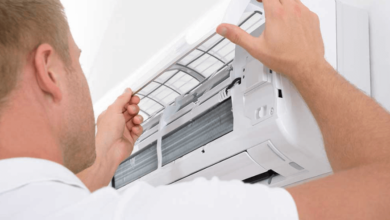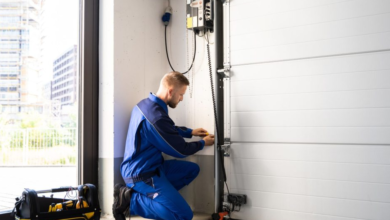
The Top Benefits of Hiring a Certified Pool Resurfacing Contractor
Why Pool Resurfacing Is Not a Job for Just Anyone
If your pool surface is cracking, flaking, or showing signs of staining, you might be overdue for a professional pool resurfacing. While it may be tempting to cut corners or rely on general handymen, resurfacing a pool is a specialized task that requires precision, proper materials, and deep technical expertise. That’s why working with a certified pool resurfacing contractor isn’t just a smart move—it’s a necessary investment.
According to a 2024 report by the Pool & Hot Tub Alliance (PHTA), over 58% of premature surface failures in residential pools were linked to improper installation techniques and poor surface preparation. Choosing a certified professional can protect you from these costly and frustrating outcomes.
In this article, we’ll explore the top benefits of hiring a certified contractor for your next pool resurfacing project and how doing so helps protect your investment, your safety, and your peace of mind.
1. Certified Contractors Follow Industry Standards
Certification means a contractor has met recognized industry benchmarks for knowledge, safety, and skill. Organizations like the National Plasterers Council (NPC) or PHTA provide certifications after rigorous training and assessments.
When you hire a certified pool resurfacing contractor, you’re getting someone who understands:
- The proper ratios for mixing plaster or aggregate surfaces
- How to correctly prepare and clean the substrate
- The correct application timelines to prevent future cracks or delamination
- Water chemistry management to protect the new finish
By following these industry best practices, certified professionals help ensure your new surface adheres properly and lasts its full expected lifespan—often 10 to 15 years, depending on the finish.
See also: Mercy Home Services: Comprehensive Home and Community Based Services
2. Long-Term Cost Savings
While certified contractors may charge slightly more upfront, they save you money in the long run. Poorly executed resurfacing jobs often lead to early surface failure, discoloration, leaks, or structural damage—all of which can cost thousands more to correct.
Let’s put this in perspective:
A professional resurfacing job with a quartz finish might cost $7,000–$10,000. A failed DIY or uncertified job may need full replacement within 3 years. The same job, if redone, could exceed $15,000 due to demolition and repairs.
Hiring the right professional the first time avoids these recurring costs and preserves your pool’s value.
3. Access to Higher-Quality Materials
Certified pool resurfacing contractors often have access to commercial-grade materials that aren’t available to general contractors or consumers. These include advanced quartz, pebble, and polished aggregate finishes that offer superior durability, aesthetics, and resistance to staining or chemical imbalance.
Some premium finishes, such as PebbleTec® or Diamond Brite®, even require certified applicators to maintain product warranties. That means hiring a non-certified contractor could void the manufacturer’s coverage entirely.
4. Warranties and Guaranteed Workmanship
One of the most valuable benefits of working with a certified professional is the warranty coverage that typically comes with the job. Most reputable contractors offer both:
- Material warranty (e.g., 5–10 years from the manufacturer)
- Workmanship guarantee (e.g., 1–3 years depending on the contractor)
These warranties provide peace of mind and ensure that if anything goes wrong due to poor craftsmanship, you’re not left footing the bill.
In contrast, uncertified or “fly-by-night” contractors may not offer any warranty at all—or worse, disappear when issues arise.
5. Faster, Safer Project Completion
Pool resurfacing involves draining, sanding or chipping away old surfaces, applying new finishes, curing the material, and rebalancing the water. Each step must be timed and executed precisely.
Certified contractors bring in trained crews, adhere to safety protocols, and follow strict curing schedules that reduce the risk of injury and property damage. They also complete jobs faster due to their experience and efficient tools—getting your pool back up and running in 7–10 days on average, depending on the finish.
6. Accurate Diagnosis of Underlying Issues
Sometimes what looks like a surface issue—like plaster flaking—may be a symptom of a larger problem, such as improper water chemistry, structural cracks, or poor drainage behind the pool shell.
Certified contractors are trained to spot these deeper issues during their initial inspection. Instead of just patching the problem, they recommend comprehensive solutions that protect your pool for the long term.
This expertise can save you from hidden structural repairs or costly leak detection services down the line.
7. Better Aesthetic Results
A certified resurfacing contractor doesn’t just make your pool functional—they make it beautiful. From uniform texture to perfectly blended pigment, the aesthetic quality of the finish matters, especially if you plan to sell your home or entertain guests.
According to Zillow’s 2023 outdoor trends report, homes with recently resurfaced or remodeled pools saw up to a 7% increase in perceived property value. A smooth, professional finish can make all the difference.
Final Thoughts: Certification Is the Shortcut to Quality
When it comes to pool resurfacing, the difference between a good outcome and a costly do-over often comes down to who does the work. Certified pool resurfacing contractors bring the training, tools, and industry knowledge that protect your investment and ensure long-lasting beauty and durability.
So before you choose the lowest bidder or trust a general handyman, ask yourself: Is it worth the risk?
Trust the professionals. Your pool—and your budget—will thank you.




